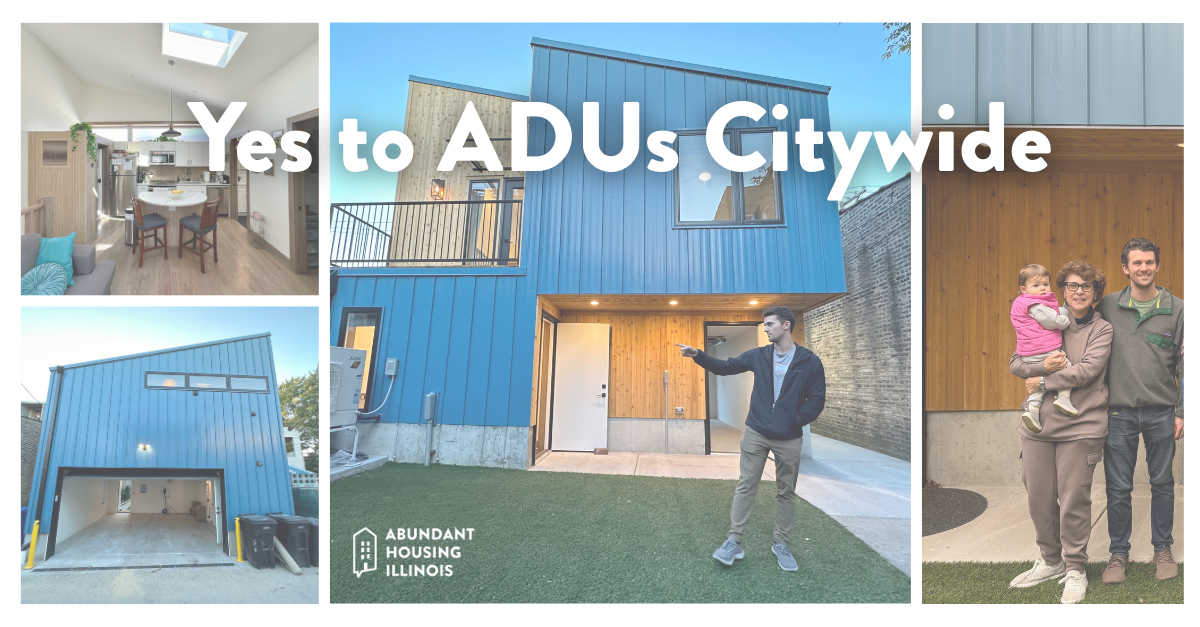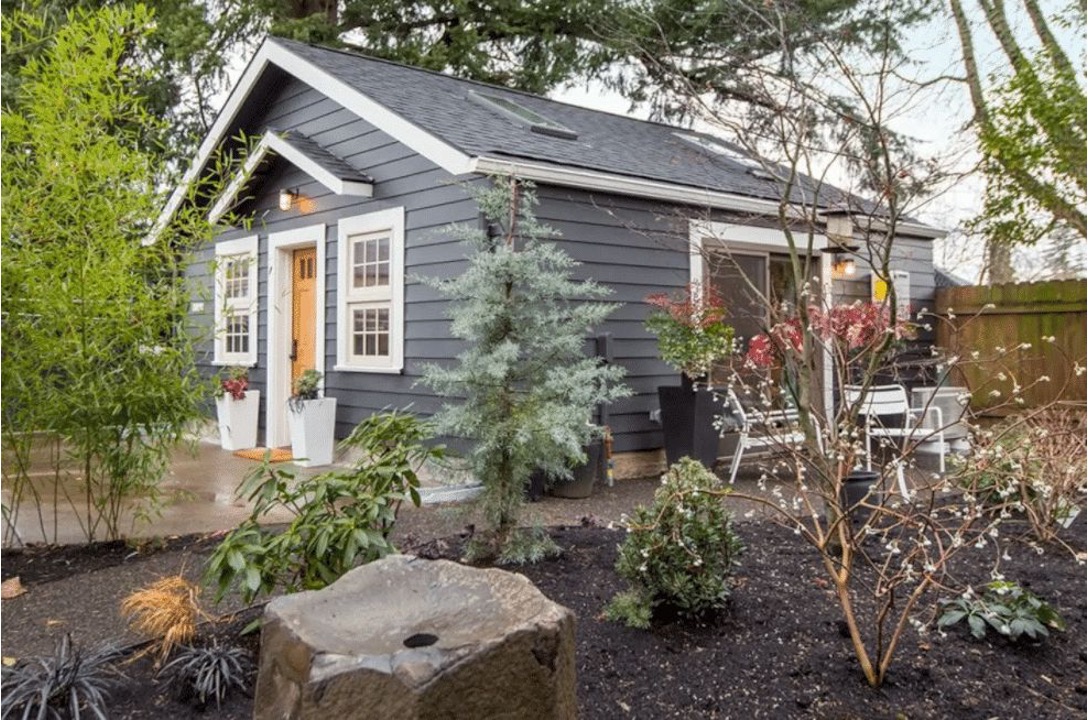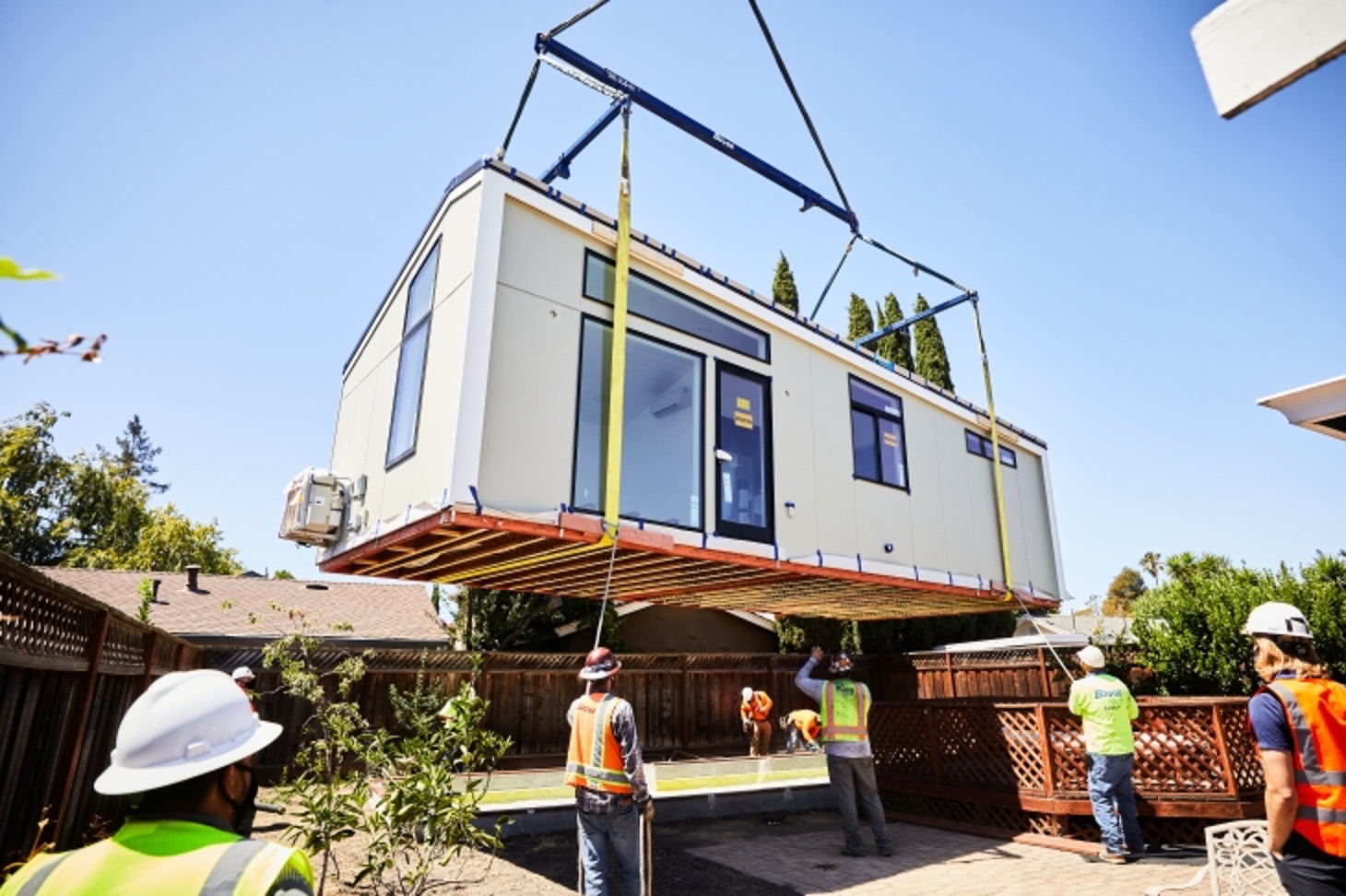Support ADUs (Coach Houses) citywide in Chicago
Chicago City Councilmembers

What's going on?
Currently, Accessory Dwelling Units (ADUs) – also known as in-law units, granny flats, and coach houses – are only legal in five pilot areas in Chicago, which were established May 1, 2021. As of July 8, 2025, the city has permitted 396 ADU homes across 338 houses and apartment buildings.
- In May 2023, Alder. Lawson introduced O2024-0008918, an ordinance that would legalize ADUs citywide and currently has 14 co-sponsors.
- At the Zoning Committee meeting on July 15, 2025, citywide ADUs was passed, 13 to 7.
- But then on July 16, 2025, two members of City Council "deferred & published" the ADU ordinance to a future City Council meeting.
- The ADU ordinance will be called for a vote on September 25, 2025, and your signature is needed by September 24.
Action item
Sign our petition today and tell Chicago City Council to support ADUs citywide! ADUs are a climate-friendly step towards solving the nation's housing crisis while reducing exclusionary zoning and supporting high-paying construction jobs.
About ADUs
Accessory dwelling units, also known as in-law units, coach houses, or granny flats, are an important tool for addressing the housing and climate crises. These types of housing units were typically legal before the widespread adoption of single-family zoning in cities, and provided affordable housing options to residents and an additional income stream for homeowners. Now, with housing costs skyrocketing across the United States, many cities and states are re-legalizing ADUs.
ADU benefits:
- Naturally affordable housing - provides a new housing option for young adults, retirees, and small families
- Aging in place - elderly individuals can downsize while staying close to family and friends in their neighborhood
- Multi-generational households - have family support nearby, while maintaining personal spaces
- Rental income - an additional income stream can help prevent the displacement of low-income homeowners and retirees on fixed-incomes
- Gentle density - provides new housing in existing neighborhoods without impacting its appearance
- Climate-friendly - building new homes in existing neighborhoods lets more people live in walkable communities. It simultaneously reduces demand for sprawling, greenfield development that destroys natural habitats and encourages driving. New construction ADUs are also highly efficient and often all-electric, leveraging clean technologies such as heat pumps and induction ranges.
ADU success stories:
- In Los Angeles, ADUs now make up 1 in 4 new homes (5,064 permitted in 2021 alone)
- Since ADU reform was passed in 2016, ADU construction has boomed in California and now makes up approximately 12% of all new homes permitted.
ADU share of all new home permits issued (Bay Area and California)
Current ADU pilot areas
To:
Chicago City Councilmembers
From:
[Your Name]
I am writing to you as a Chicago resident urging you to support the ordinance to allow Accessory Dwelling Units (ADUs) citywide. This climate-friendly, family-friendly ordinance will support the development of thousands of affordable homes while supporting high-paying construction jobs and local small businesses.
ADUs have been well received in the pilot areas. Over 390 ADUs have been permitted since the pilot began. Families love the ability to have relatives close by, and elderly residents love being able to "age in place". When more homes are built in existing neighborhoods, local small businesses benefit. Removing geographic limitations to ADU construction will support their rapid adoption.
Legalizing ADUs in wealthy, transit-rich Chicago neighborhoods is a racial justice issue. Single-family zoning is an exclusionary practice that increases the cost of housing, increases the cost of scarce land, and denies additional affordable homes in walkable, vibrant neighborhoods.
ADUs are a climate-friendly housing option. Allowing more new, high-efficiency homes in walkable Chicago neighborhoods reduces the demand for sprawling, greenfield development in the suburbs.
You can take a brave step to unlocking new homes, protecting the environment, and providing roofs over heads. Please support ADUs citywide and help make Chicago a more inclusive, affordable, and climate-friendly city!




